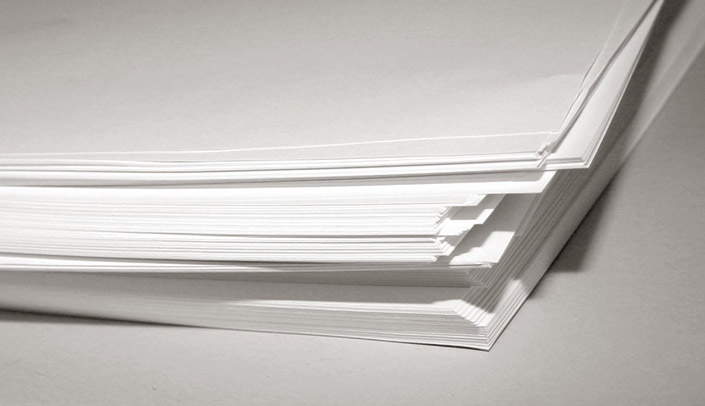Paper usage has been an environmental hot topic for decades.
It is easy to see the connection between paper usage and the environment, as we all grew up thinking about trees being cut down to be turned into paper. In 2018, UNMC and Nebraska Medicine used a combined total of 23.2 million sheets of paper (minimum) for the year. With new printer technology at Nebraska Medicine, we now have the data to say that 77% of those jobs were grayscale, which is great, but only 27% were double-sided.
Paper production is an environmentally harmful process, often using trees in endangered forests, relying only in part on recycled materials. Paper production is energy and chemical intensive, causing major pollution issues in waterways across the world and endangering health. To make matters worse, the EPA estimated that 40% of paper and paperboard products ends up in the landfill.
The Paper Calculator is an interesting reference tool to determine the environmental effects of your personal paper usage.
This fall, we are launching a “Think Before You Print” campaign, that challenges all of us to use less paper. Below are some easy things you can do in your area:
- Use electronic meeting agendas and take notes electronically;
- Don’t print notes, slides, or handouts for meetings/classes;
- Use track changes in Word and comments/sticky notes in Adobe instead of making paper edits;
- Use Teams and Sharepoint to work in documents;
- Laminate common information sheets for patient review and only print necessary documents
- Email documents instead of faxing;
- Place all paper in blue bins, which is required by policy and ensures they are recycled;
- Print double-sided and in grayscale; and
- Eliminate blank pages and check settings before you print to avoid printing errors.
We also challenge each of you to facilitate group dialogue and solutions in your area. The campus has well in excess of 6,000 printers. Are all needed? What are the largest uses of printed paper in your area? How could we reduce this number? Please tell LiveGreen what changes you make so we can share your successes with others.
We will be monitoring the effects of this campaign using paper usage data. There are real environmental and financial benefits to using less paper, so “Think Before You Print!”

An article I believe is worth reading… https://www.greenbiz.com/blog/2010/04/14/going-paperless-not-green-and-tree-friendly-you-think